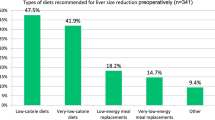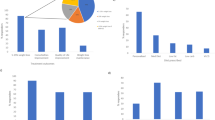Abstract
OBJECTIVES:
To document the attitudes and practices of French general practitioners (GPs) regarding obesity management.
RESEARCH METHODS AND PROCEDURES:
A cross-sectional survey of a randomly selected sample of 744 French GPs was conducted, of which 607 questionnaires were returned. The measures included views on weight management, definitions of success, approaches to and strategies recommended for weight management and prevention, problems, frustrations, and expectations in managing obesity.
RESULTS:
GPs have a high awareness of obesity as a medically relevant issue, with 90% of them considering it to be a disease. However, they are only 42% to consider themselves well prepared to manage obesity and 51% to find obesity management professionally rewarding. They are 66% to believe that only a small percentage of patients can lose weight and maintain that loss but have unrealistic goals, with only 20% of them considering weight maintenance as a success. They do not consider collaboration with other health professionals like dietitians as a priority. Only 34% of the GPs believe that the currently available drugs are effective. Their views regarding bariatric surgery are in agreement with the recommendations of international experts. Their main expectations regarding obesity management are to improve their professional intervention through formation, education and easy-to-use tools, rather than improving their collaboration with other health professionals.
DISCUSSION:
There remains considerable opportunity to improve GPs' practice in obesity management. Medical education, increased cooperation with dietitians, improved long-term follow-up, and implementing better use of the available documents are key issues.
This is a preview of subscription content, access via your institution
Access options
Subscribe to this journal
Receive 12 print issues and online access
$259.00 per year
only $21.58 per issue
Buy this article
- Purchase on Springer Link
- Instant access to full article PDF
Prices may be subject to local taxes which are calculated during checkout
Similar content being viewed by others
References
World Health Organization. Obesity, preventing and managing the global epidemic: Report of the WHO consultation of obesity. World Health Organisation:Geneva, June 1997.
Philip TJ, Leach R, Kalamara E, Maryam Shayeghi . The Worldwide Obesity Epidemic. Obes Res 2001; 9: 228S–233S.
ObEpi 2003: L'obésité et le surpoids en France. http://www.tns-sofres.com/etudes/sante/190603_obesite.htm.
Sturm R . Increases in clinically severe obesity in the United States, 1986–2000. Arch Intern Med 2003; 163: 2146–2148.
Kreuter MW, Chheda SG, Bull FC . How does physician advice influence patient behavior? Evidence for a priming effect. Arch Fam Med 2000; 9: 426–433.
Logue E, Sutton K, Jarjoura D, Smucker W . Obesity management in primary care: assessment of readiness to change among 284 family practice patients. J Am Board Fam Pract 2000; 13: 164–171.
Bull FC, Jamrozik K . Advice on exercise from a family physician can help sedentary patients to become active. Am J Prev Med 1998; 15: 85–94.
Kristeller JL, Hoerr RA . Physician attitudes toward managing obesity: differences among six specialty groups. Prev Med 1997; 26: 542–549.
Galuska DA, Will JC, Serdula MK, Ford ES . Are health care professionals advising obese patients to lose weight? JAMA 1999; 282: 1576–1578.
Stafford RS, Farhat JH, Misra B, Schoenfeld DA . National patterns of physician activities related to obesity management. Arch Fam Med 2000; 9: 631–638.
Wee CC, McCarthy EP, Davis RB, Phillips RS . Physician counseling about exercise. JAMA 1999; 282: 1583–1588.
Campbell K, Engel H, Timperio A, Cooper C, Crawford D . Obesity management: Australian general practitioners attitudes and practices. Obes Res 2000; 8: 459–466.
Basdevant A, Laville M, Ziegler O . Practice guideline for the diagnosis, prevention, treatment of obesity in France. Diabetes Metab 1998; 24 (Suppl 2): 10–42.
Flegal KM, Carroll MD, Ogden CL, Johnson CL . Prevalence and trends in obesity among US adults, 1999–2000. JAMA 2002; 288: 1723–1727.
Hoppe R, Ogden J . Practice nurses' beliefs about obesity and weight related interventions in primary care. Int J Obes Relat Metab Disord 1997; 21: 141–146.
Campbell K, Crawford D . Management of obesity; attitudes and practices of Australian dietitians. Int J Obes Relat Metab Disord 2000; 24: 701–710.
Wooley SC, Garner DM . Obesity treatment: the high cost of false hope. J Am Diet Assoc 1991; 91: 1248–1251.
Kayman S, Bruvold W, Stern JS . Maintenance and relapse after weight loss in women: behavioral aspects. Am J Clin Nutr 1990; 52: 800–807.
Foreyt JP, Goodrick GK . Attributes of successful approaches to weight loss and control. Appl Prev Psychol 1994; 3: 205–209.
Perri MG, Nezu AM, Patti ET, McCann KL . Effect of length of treatment on weight loss. J Consult Clin Psychol 1989; 57: 450–454.
Nicholas LG, Pond CD, Roberts DC . Dietitian–general practitioner interface: a pilot study on what influences the provision of effective nutrition management. Am J Clin Nutr 2003; 77 (4 Suppl): 1039S–1042S.
Helman T . Nutrition and general practice: an Australian perspective. Am J Clin Nutr 1997; 65: 1939S–1942S.
Campbell LV, Welborn TA . Current teaching about obesity in Australian universities. Med J Aust 1994; 160: 584–585.
Fogelman Y, Vinker S, Lachter J, Biderman A, Itzhak B, Kitai E . Managing obesity: a survey of attitudes and practices among Israeli primary care physicians. Int J Obes Relat Metab Disord 2002; 26: 1393–1397.
Frank A . Futility and avoidance. Medical professionals in the treatment of obesity. JAMA 1993; 269: 2132–2133.
Acknowledgements
We thank Roche and Novo-Nordisk industries for their financial support. We thank the DRASS of Languedoc Roussillon for their assistance with providing a complete list of general practitioners, and particularly the general practitioners who participated in the study.
Author information
Authors and Affiliations
Corresponding author
Rights and permissions
About this article
Cite this article
Thuan, JF., Avignon, A. Obesity management: attitudes and practices of French general practitioners in a region of France. Int J Obes 29, 1100–1106 (2005). https://doi.org/10.1038/sj.ijo.0803016
Received:
Revised:
Accepted:
Published:
Issue Date:
DOI: https://doi.org/10.1038/sj.ijo.0803016



